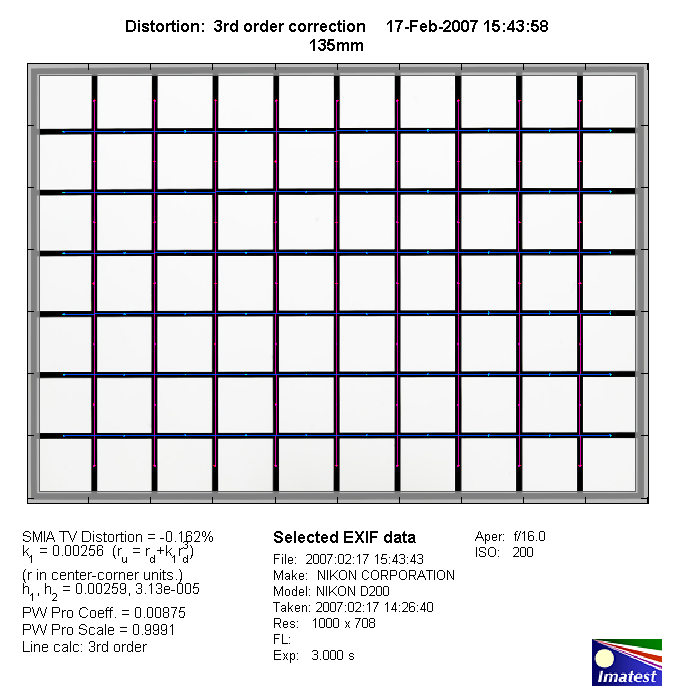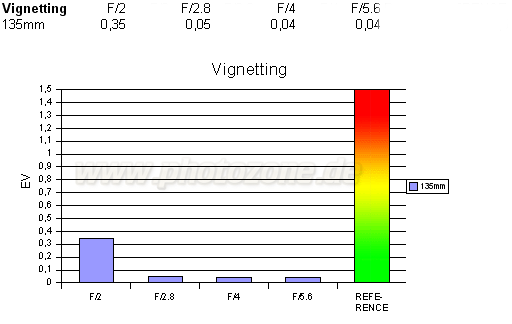|
Nikkor AF 135mm f/2 D DC - Review / Test Report - Analysis |
|
Lens Reviews -
Nikon / Nikkor (APS-C)
|
|
Page 2 of 3
Distortion
The DC-Nikkor shows an extremely low level of distortion (0.16%) which is absolutely
negligible in field conditions.

The chart above has a real-world size of about 120x80cm.
Vignetting
Thanks to the sweet spot behavior on the D200 vignetting is very well controlled and
it is generally no problem to use this lens even at the max. aperture setting (f/2).

MTF (resolution)
The resolution figures are already very good at f/2 and increase to excellent levels beyond.
The sweet spot is reached between f/4 and f/5.6. This applies to R=2 which is the sharpest
setting according to the manual.
With activated Defocus Control (other than f=R or F) the corresponding image softening
also affects the resolution and contrast performance to varying degree but by doing so
the quality of the bokeh is of primary interest and less so the sheer resolution.
Please note that the MTF results are not directly comparable across the different systems!
Below is a simplified summary of the formal findings. The chart shows line widths per picture height (LW/PH) which can be taken as a measure for sharpness.
If you want to know more about the MTF50 figures you may check out the corresponding Imatest Explanations
Chromatic Aberrations (CAs)
Lateral chromatic aberrations (color shadows at harsh, in-focus contrast transitions) are
very low at around 0.4px on the average at the image borders.

Typical for many ultra-large aperture lenses the DC-Nikkor suffers a bit from
Longitudinal Chromatic Aberrations (LoCA) resulting in greenish and reddish
out-of-focus edge transitions.
|